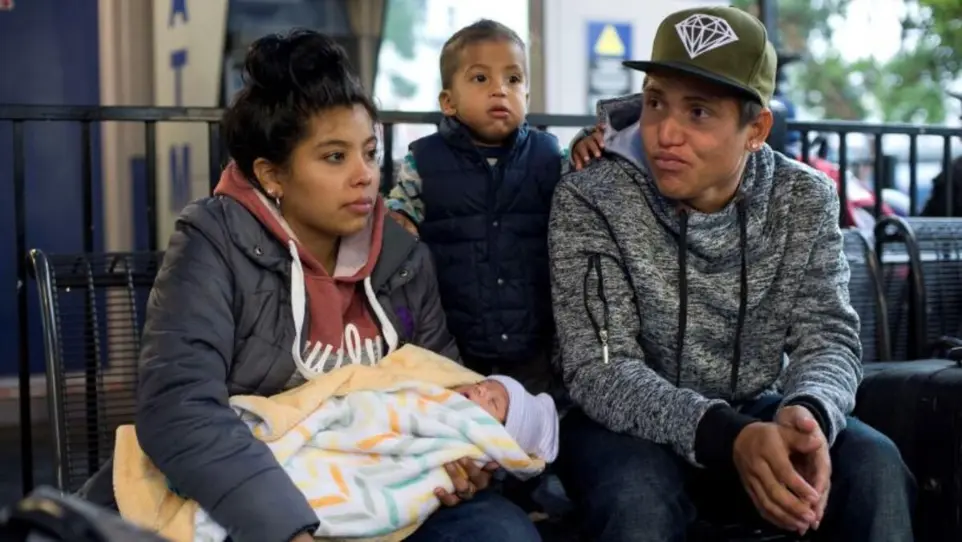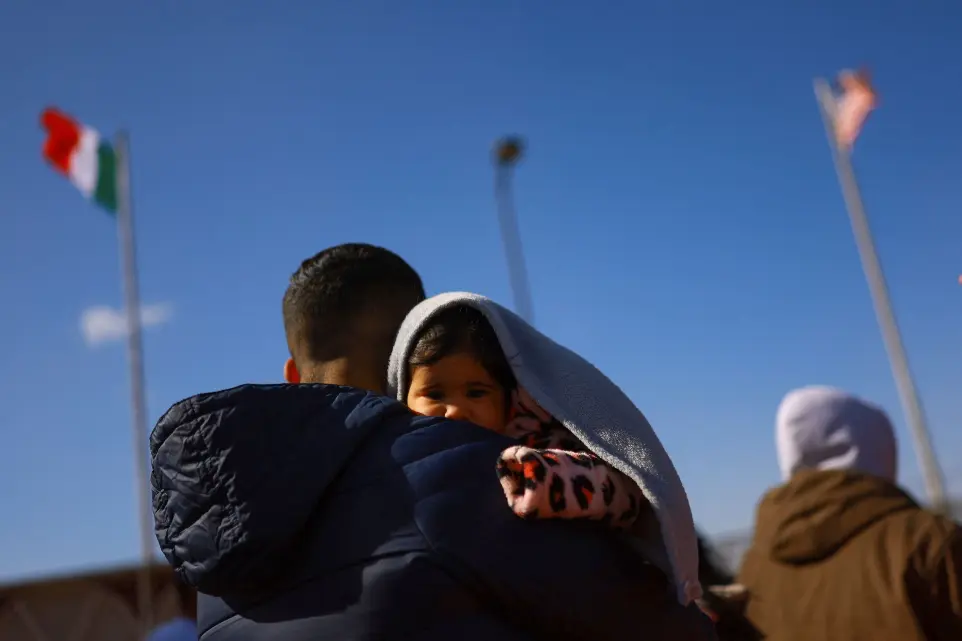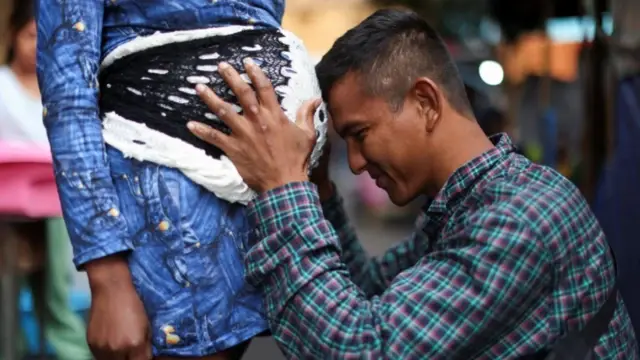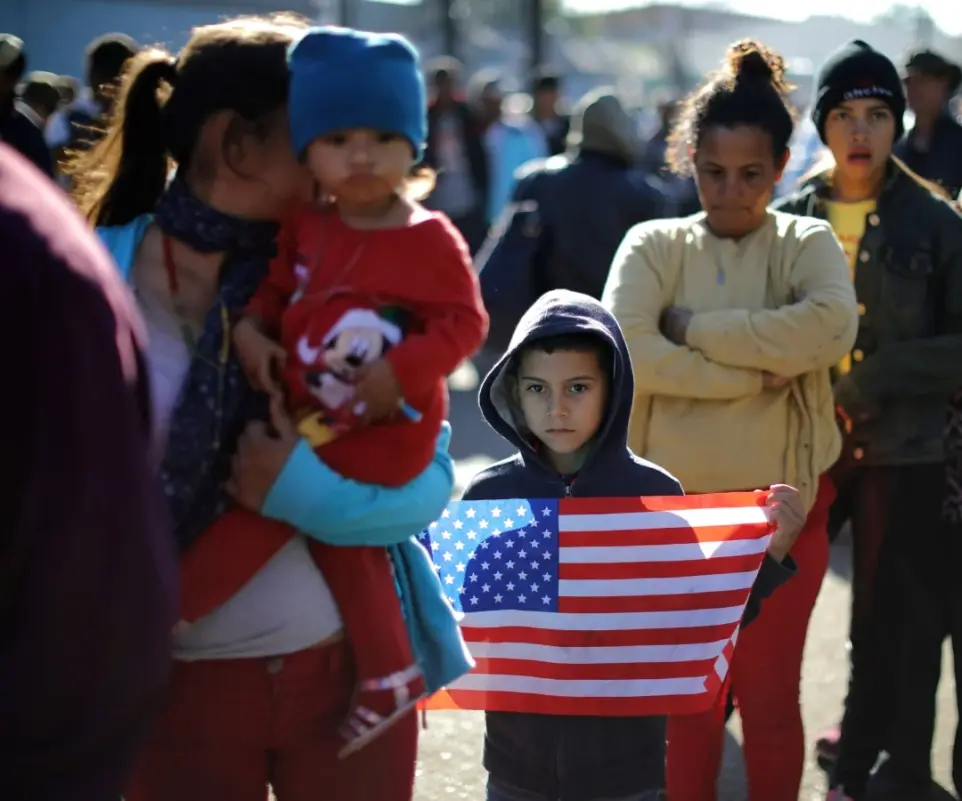



"My child will be stateless": Trump's plans condemn a generation of children to statelessness
The decree, temporarily blocked by a judge, prevents asylum seekers from registering their children in the United States, but they also cannot do so in their countries of origin, whose governments they fled.
As expected, a judge has temporarily blocked the presidential decree that eliminated the right to birthright citizenship, deeming it "unconstitutional." Although Donald Trump had announced he would do so weeks before his inauguration, many experts believed he would not keep his promise because it defies the Constitution, which has enshrined this guarantee in its Fourteenth Amendment since 1868. However, stripping children of this right based on their parents' immigration status was one of the first decrees the magnate signed. Although the temporary freeze leaves its implementation up in the air, thousands of families feel threatened by an executive order fraught with uncertainty, as it fails to clarify many assumptions and leaves future descendants in limbo, forming a generation without any nationality.
“My son will be stateless. The executive order caused a lot of confusion for many families like mine. Those of us who are asylum or TPS applicants are unsure what to do with this executive order, and if it applies to us.” These are statements by Mónica, who prefers to remain anonymous. A Venezuelan doctor by profession, she is 12 weeks pregnant, and the president's order has just turned her pregnancy upside down. “Instead of worrying about the child coming into the world healthy, we are stressed, anxious, and depressed about this situation: now our babies cannot become citizens,” she laments.
Mónica is one of five pregnant women who this week filed a lawsuit against Trump's executive order in the state of Maryland, where they reside, supported by the organizations CASA, the Asylum Seeker Advocacy Project (ASAP), and the Georgetown Law School Institute for Constitutional Protection (ICAP).
An asylum seeker under the Temporary Protected Status (TPS) program, Mónica fears that when her baby arrives in the world in late July or early August, she will not be able to register the child and will be left without any nationality. Venezuela lacks an embassy or consulate in the United States, and due to the new decree, she would not be able to do so in the country where she was born.
The uncertainty of not knowing where to register her children and whether they will be citizens of any country is not limited to countries that, like Venezuela, do not have diplomatic representation in the United States. Foreign asylum seekers have fled the violence and persecution they face in their respective countries, so they cannot go to their governments to request citizenship for their children.
“There are many people in the United States seeking asylum who fear their children will have no homeland. They are afraid to go to the embassy or consulate in their country of origin because they have already filed a petition in the United States claiming that the government has persecuted them.” As asylum seekers, they are also not allowed to travel outside their country.
Trump has halted asylum applications with another executive order, and it is unknown what will happen to those pending. Monica filed her application six years ago and has yet to be summoned to explain her case. The regulation establishes a 180-day period, but the backlog of cases due to a lack of staff and budget at the Department of Immigration has increased exponentially in recent years. According to the report presented last July, there were more than one million pending cases by the end of 2023.
If implemented, the executive order, entitled "Protecting the Meaning and Value of American Citizenship," leaves many uncertainties about who it will affect. The statement states that citizenship will not be granted in two cases: one, when the mother is residing in the United States illegally and the father is not a U.S. citizen or legal permanent resident; and two, when the mother has legal but temporary permission (such as a student, work, or tourist visa) and the father is not a citizen or permanent resident.
According to Rupa Bhattacharyya, legal director of ICAP, which filed the Maryland lawsuit, it's unclear who is affected. The second assumption raises the most questions. "Some examples are provided so we know those individuals will be immediately affected, but nothing else is defined, so it's unclear exactly who they are. It's vital that a person's citizenship be clear and unambiguous, and the executive order currently makes that impossible. Many children will be denied citizenship. For others, the vagueness of the order's terms casts their status into complete and utter uncertainty," she argues.
Federal Judge John C. Coughenour, who has blocked the order's implementation, deeming it "blatantly unconstitutional," ruled on a lawsuit filed by the states of Washington, Arizona, Illinois, and Oregon. At least six lawsuits have already been filed by 22 states and various immigrant groups across the country. All of them claim the executive order is unconstitutional.
As the decree is not retroactive, if it were to go into effect, it would create absurd situations within the same family, where some children would be citizens and others would not, potentially causing further family separations. This is the case of Maribel, another pregnant woman participating in the Maryland lawsuit, who also prefers to remain anonymous. A resident of the United States for two decades, she has two children who are citizens. “I fear that my unborn child will be denied the basic rights enjoyed by my other children, including access to healthcare and a quality education. Without the protections of American citizenship, the Trump Administration might even attempt to take my baby and our family away from me and deport them to a country they have never known.”
The Fourteenth Amendment to the Constitution specifies that “all persons born or naturalized in the United States, and subject to the jurisdiction thereof, are citizens of the United States and of the State wherein they reside,” leaving out rare exceptions, such as the children of diplomats.
Trump maintains that parents who are not citizens or permanent residents are not subject to U.S. jurisdiction, but so far, his argument has not held water.
“No president has the authority to unilaterally alter the U.S. Constitution or its well-established interpretation by the Supreme Court, particularly in the area of individual rights. The executive order attempts to grant power that Trump simply does not have. By right, the executive order should be ignored. Practically speaking, it may not be implementable due to the chaos that would entail the long-term creation of a stateless class in this country,” says Thomas A. Saenz, president of the Mexican American Legal Defense and Educational Fund (MALDEF).

 IHRO NEWS
IHRO NEWS